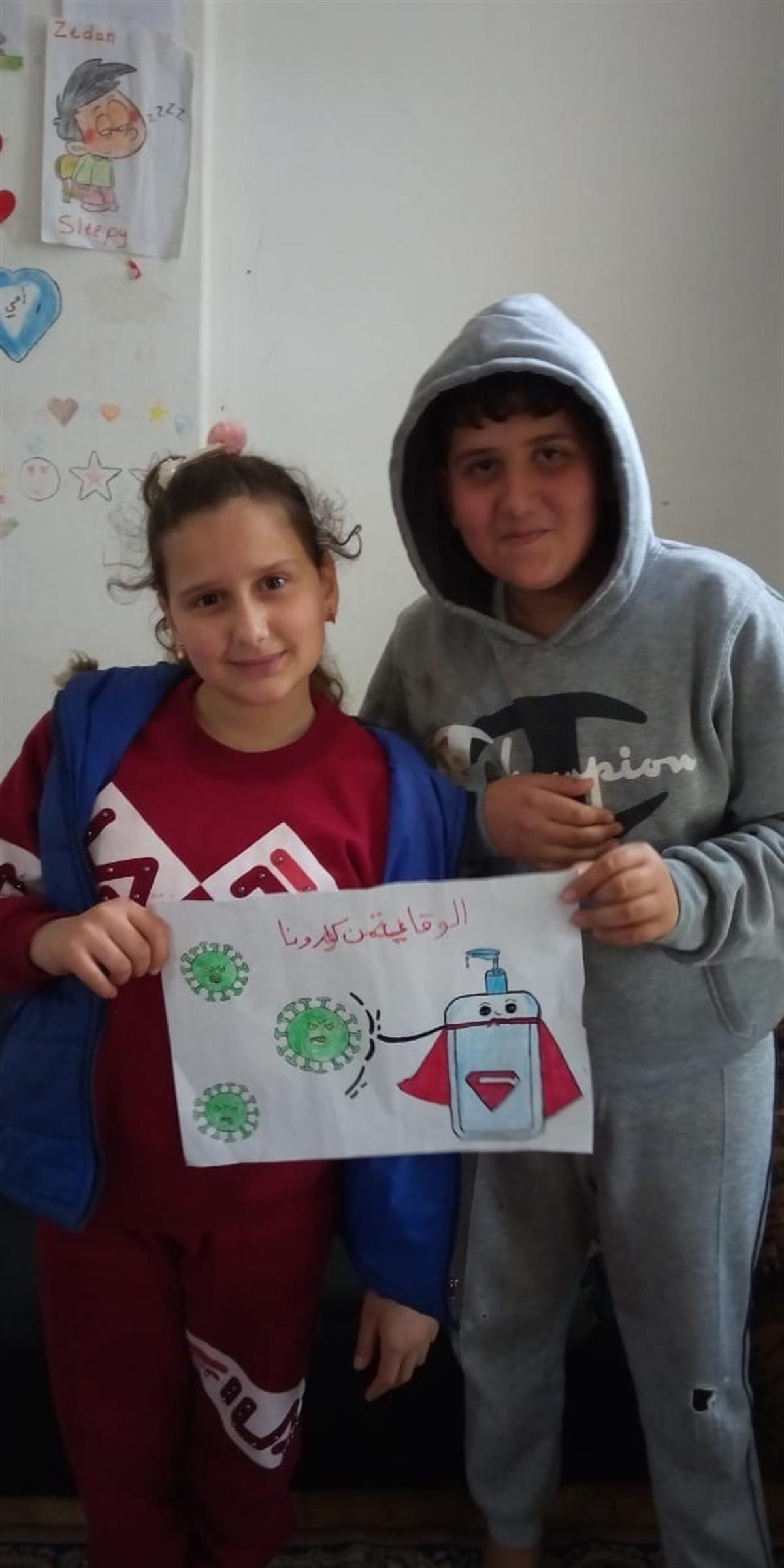According to UNESCO, 1.23 billion learners worldwide (70,6% of the world's student population) are unable to go to school or university, due to measures to stop the spread of COVID-19.
In Lebanon since the outbreak of the pandemic and in line with the Government of Lebanon’s decision to shutdown all educational institutions, the EU-Funded project Back to the Future suspended the activities in its learning centers. However, the staff continued to support out of school children (three to five and ten to fourteen years old) who usually attend non-formal education activities.
“We are doing all the best to protect the gains made for children – explains Davide Amurri Back to the Future chief of party - Education is vital to prevent a Syrian lost generation and to help the most vulnerable Lebanese: it’s their chance to go back to the future, as our project states”.
Back to the Future is a project funded by the EU Regional Trust Fund in Response to the Syrian Crisis (MADAD Fund) which promotes enrollment and improves retention in formal education, for over 16,955 refugee and vulnerable children from local communities. It also enhances the learning environment by upgrading school buildings. The project supports formal and non-formal activities for pre-school and school-aged children. The project is implemented all over Lebanon over two years (2019-2021) by a consortium of 3 NGOs involving AVSI, War Child Holland and Terre des Hommes Italy.
Through a Remote COVID-19 Awareness Campaign, the staff contacted the parents by phone to raise awareness about the risks of COVID-19 and prevention measures to be adopted. Secondly, the project staff started a distant learning activity through parental engagement aiming at sustaining children’s learning and their wellbeing.
The distant learning activity
In AVSI, we started a distance learning program via Kytabi platform involving 180 Syrians girls and boys out of school aged 5 to 14 years old, living in South Lebanon and in Bekaa. Kytabi is a free online storybook website for children, it includes stories, games and tutorials in Arabic, English and French targeting three different levels. The 'Back to The Future' project in AVSI initiated a systematic back and forth communication with caregivers and parents by sharing a set of educational content and questions via WhatsApp groups. The distance learning program aims at maintaining continuity in children’s learning process in times when access to education is deeply compromised. Additionally, the projects looks at the involvement of caregivers as a vital component positively influencing children’s learning and wellbeing.

Reem and Ahmad
“Ayda is the mother of Reem (10 years old) and Ahmad (12 years old) who started the basic literacy and numeracy class in Phoenix Forum centre in February, in South Lebanon – explains Rima, AVSI education assistant – But by the end of February the center was closed due the lockdown, so her two children could not go to class every day. She asked to the team to keep on following them so AVSI and its staff continued to support them and other children through by telephone and whatsapp and from mid-April we introduced also the Kytabi platform. Everyday Ayda send us the pictures of the remote lessons and colorful activities done by her two children attached on the wall in their room"
The number of children involved is increasing, although some challenges remain. “Some parents does not have access to internet, they just have access to limited type of Whatsapp connection – explains Walaa Dandachli, Back to the Future project manager - Hence the project foresees to provide them with internet data bundle to ensure their access to the online resources provided. Also, we are working on optimizing the remote tools used for the different age range”.
Next steps
To be further in line with the national curriculum for non-formal education, the Back to the Future consortium partnered with Seenaryo, an educational NGO working with marginalized communities. Seenaryo will support with the development and delivery of educational content and wellbeing tools for children aged 3 to 5 years old under the Community-based Early Childhood Education program. Whereas children aged 10 to 14 years old under the Basic Literacy and Numeracy program will be provided with distant learning activities through Can’t Wait to Learn, a platform developed by War Child Holland proposing learning content for Arabic and Math.
“We hope to meet soon all children in our learning centers – Amurri concludes – that’s why we choose distance learning platforms that can easily be switched to on-site learning activities”